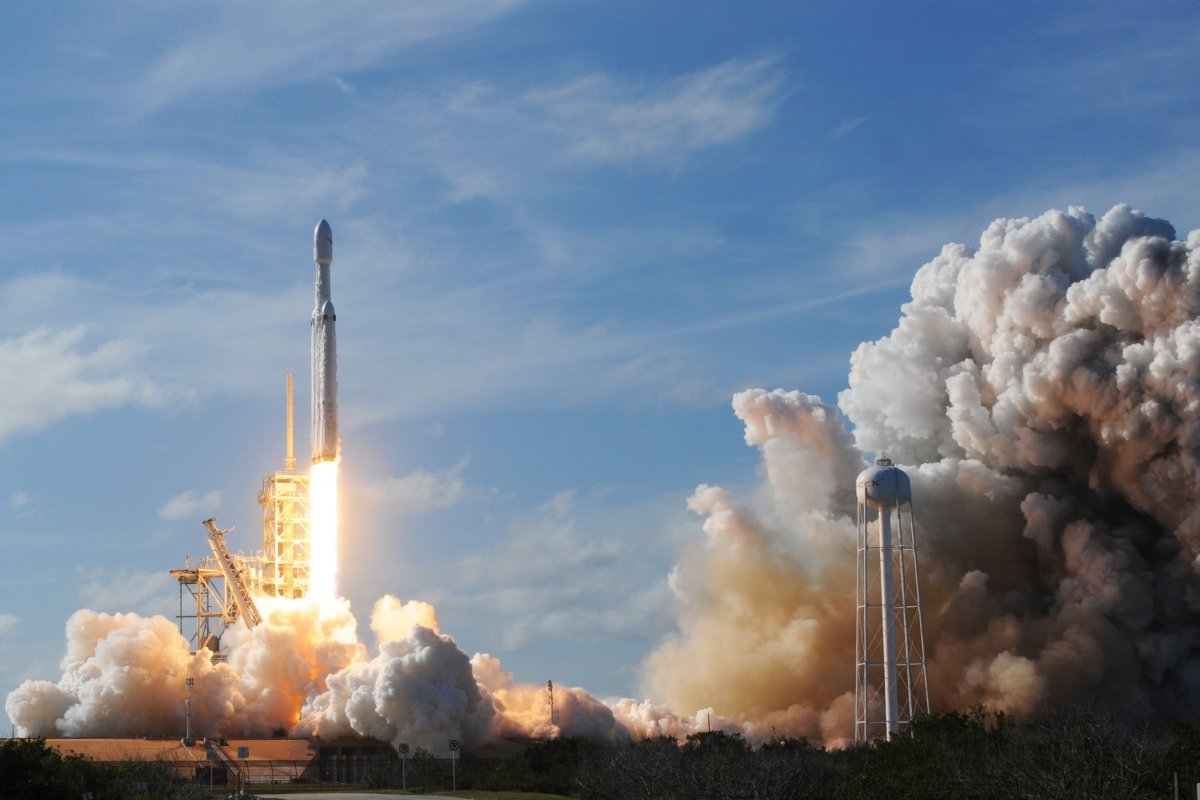Putting objects into space is a prohibitively expensive business due to the costs associated with rocket technology. A single launch of SpaceX's Falcon Heavy rocket, as an example, costs a staggering $90 million according to the company—and that's on the more affordable end of the scale.
But what if this process could be made drastically cheaper?
Enter SpinLaunch, a secretive American start-up that is planning to develop a launch system which would be capable of catapulting items into space without the need for huge, costly rockets.
The company's concept involves a powerful centrifuge which will rotate at speeds of around 3,000 mph—greater than the speed of sound—generating enough momentum to hurl items into space, TechCrunch reports.
Once the object is ejected into the atmosphere it may be helped on its journey beyond the atmosphere by small, supplementary booster rockets.
Read more: Space start-up rocket lab achieves world first fully-private satellite launch
The company will be aiming for a target price of just $500,000 per launch, according to Jonathan Yaney, SpinLaunch's founder and CEO, which is drastically cheaper than any existing launch method.
While this concept may seem completely far-fetched, it may surprise you to learn that even NASA has investigated the possibility of a catapult-assisted launch system, which used a track instead of a centrifuge, although the agency concluded that a cost-effective solution was not feasible.
Despite this, Yaney—who also founded an imaging drone start-up that was acquired by Google in 2014—told TechCrunch that his company's technology would be different.
"SpinLaunch employs a rotational acceleration method, harnessing angular momentum to gradually accelerate the vehicle to hypersonic speeds," he said. "This approach employs a dramatically lower cost architecture with much lower power."

"During the last three years, the core technology has been developed, prototyped, tested and most of the tech risk retired," he claimed. "The remaining challenges are in the construction and associated areas that all very large hardware development and construction projects face."
However, two anonymous sources told TechCrunch that some physicists who have looked into SpinLaunch's plans have outlined significant obstacles facing the company. For one, Earth's atmosphere is so dense that the object being thrown into space would encounter huge amounts of air resistance that would have to be overcome in some way.
Even if this problem could be solved, any cargo would have to be engineered to withstand intense G-forces, a process which may lead to increased costs.
To fund the operation, Yaney said his company has raised a total of $10 million so far.
If successful—and it's a big if—SpinLaunch's concept would have the potential to democratize commercial spaceflight by giving smaller businesses the opportunity to put equipment into orbit for the first time.
Uncommon Knowledge
Newsweek is committed to challenging conventional wisdom and finding connections in the search for common ground.
Newsweek is committed to challenging conventional wisdom and finding connections in the search for common ground.
About the writer
Aristos is a Newsweek science reporter with the London, U.K., bureau. He reports on science and health topics, including; animal, ... Read more
To read how Newsweek uses AI as a newsroom tool, Click here.








